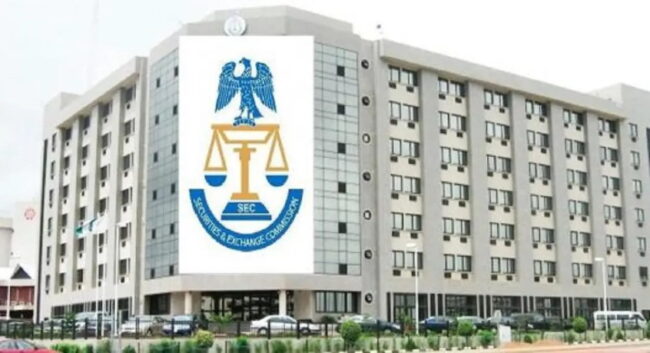 By Rukayat Adeyemi
By Rukayat AdeyemiNigerian commercial banks are set to face stiff competition for investor funds as they scramble to meet the Central Bank of Nigeria’s (CBN) new minimum capital requirements of N4.7 trillion.
This move is in response to the CBN recapitalisation directive for Nigerian banks.
The News Agency of Nigeria (NAN) reports that on March 29, the CBN directed commercial banks with international authorisation to increase their capital base to N500 billion and national banks to N200 billion.
Non-interest banks with national and regional authorisation will raise their capital to N20 billion and N10 billion, respectively. The recapitalisation exercise is expected to commence from April 1 to March 31, 2026.
According to the CBN, there are seven commercial banks in Nigeria with international authorisation: Zenith Bank, Guaranty Trust Bank, First City Monument Bank (FCMB), Access Bank, United Bank of Africa (UBA), Fidelity Bank, and First Bank of Nigeria (FBN).
Many of these banks are also categorised under Financial Holding companies, such as Fidelity Bank, Guaranty Trust Holding Company (GTCO), and Access Holdings.
Three of these banks have already opened their shares for investors for capital raising, while others are preparing to follow suit. They include Fidelity Bank, Access Holdings and Guaranty Trust Holding Company (GTCO).
Fidelity Bank Plc was the first to launch its offerings. On June 20, it opened its offer for rights issue and public offering, totaling N127.1 billion, which runs until July 29.
Under the rights issue, 3.2 billion ordinary shares of 50 kobo each were offered at N9.25 per share, totaling N29.6 billion. The public offer involved 10 billion ordinary shares at N9.75 per share, totaling N97.5 billion.
Dr Nneka Onyeali-Ikpe, the Managing Director of Fidelity Bank, stated that the proceeds from the capital raise would be instrumental in achieving the bank’s strategic growth plan, expanding its footprint within and outside Nigeria and unlocking new market opportunities.
On July 8, Access Holdings opened its rights issue offer of 17.77 billion ordinary shares of 50 kobo each at N19.75 per share, aiming to raise N351 billion. This offer will close on Aug. 14.
Mr Aigboje Aig-Imoukhuede, Chairman of Access Holdings, emphasised the commitment to shareholders by opting for a rights issue alone, allowing them to retain their ownership proportions.
The third, GTCO Plc, launched its public offering of nine billion ordinary shares of 50 kobo each at N44.50 per share on July 15, aiming to raise N400.5 billion by Aug. 12.
Its Group Chief Executive Officer, Mr Segun Agbaje, noted that the equity capital raise was timely and pivotal for the group’s strategic growth, both in banking and non-banking sectors across Africa.
As at July 19, the share prices of Fidelity Bank, Access Corporation, and GTCO stood at N10.70, N19.40, and N44.95 per share, respectively.
Market analysts have expressed divergent views on the different approaches being used by banks, which include combined offer, rights issue and public offering, presented by the three banks to raise their capital.
They also noted concerns about Access Corporation’s share price trading lower at N19.40 per share in the primary market while offering a rights issue at N19.75 per share.
But, the corporation claims its share price is currently undervalued.
Reacting, Mr David Adonri, Vice chairman, Highcap Securities, said in raising capital from the investing public, an Issuer has many options to exploit.
Adonri explained that the options chosen might depend on whether to enable existing shareholders to retain their ownership proportions which rights issue exemplifies.
He said the issuer might also use the offering to increase the company’s investor base by way of public offer for subscription.
“Where the capital amount required may be too burdensome for existing shareholders, the hybrid option may be chosen.
“However, when new members are admitted through a public offering, the ownership stake of existing shareholders become diluted,” he said.
According to him, the pricing situation in respect of some of the banks that are raising capital is worrisome.
Adonri noted that with an offering prices above their secondary market prices, the incentive for investors to subscribe to the offerings is considerably eroded.
He said, “To avoid this kind of situation, that was why the Stock Exchange in the past, always put stocks raising capital on technical suspension at the secondary market, so that a discount can stimulate investors’ interest.
“Perhaps the discarded policy may need to be reintroduced to save the viability of the primary market.
In his contribution, Mr Tajudeen Olayinka, an Investment banker and stockbroker, said that the boards of the three banks would have considered market sentiments vis-a-vis current prices of their shares in the market before arriving at their capital raise options.
Olayinka raised concerns on the current high interest rate regime which necessitated the resurgence of high yield environment in the fixed income space.
He explained that this means that any company approaching the market to raise long-term capital at this time would be issuing securities at a higher cost of capital.
“This is not the right time to approach the market, but because banking sector recapitalisation regulatory-induced capital raising exercise that is time-bound.
“The affected banks are compelled to do so forthwith, even when current share prices might not be favourable to some of them,” he said.
According to him, this is the reason a bank will choose the path of a rights issue to allow existing shareholders to benefit from a potential earnings dilution as a result of issuing too many shares due to poor or low price-to-earnings ratios.
The stockbroker noted that banks having public offerings must have been fairly favoured by market sentiments, and need to increase their shareholders’ base.
He said where it is suspected that the majority of the existing shareholders might not be favourably disposed to taking their rights, then rights issue is not recommended as a desirable option.
“But where more than 75 per cent of the existing shareholders are likely to take their rights, then rights issue becomes a desirable option.
“This might have informed the decision of the board of Access Corporation Plc to raise equity capital by way of rights”, he said.
According to him, the offer prices of the new shares to be issued are higher than current secondary market prices because the issuers believe strongly that current market prices have not factored in its strong earning prospects.
These strong earning prospects, Olayinka said, would come into place as a result of introducing new capital to the affected bank’s businesses.
He stated that the current market prices would adjust to the realities of the future of the affected banks in the course of marketing the offers.
The stockbroker added that while prices of the new offers were fixed, the secondary market prices would continue to adjust to the dictates of demand and supply, noting that this is done to prevent price manipulation in both markets.






















